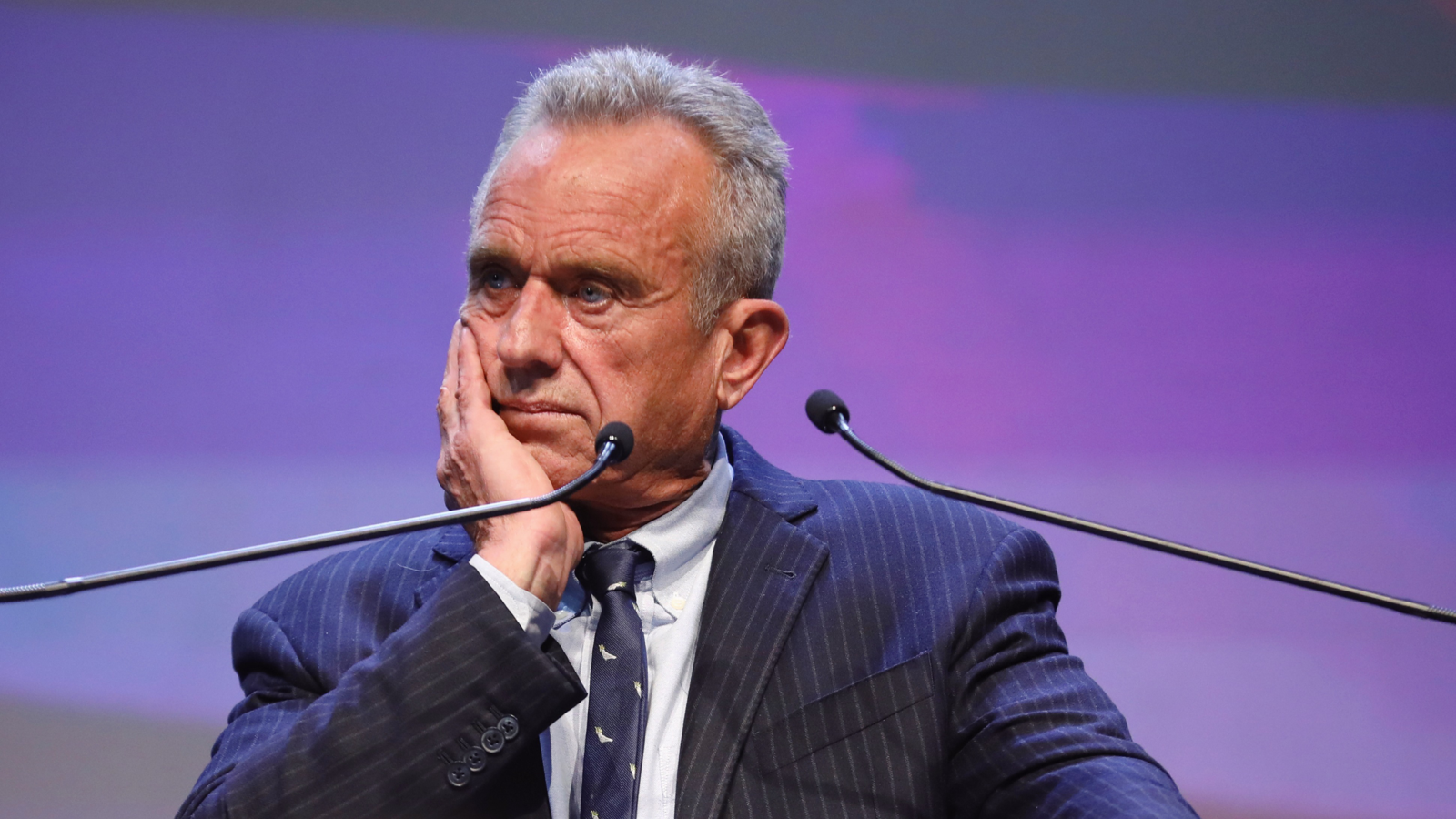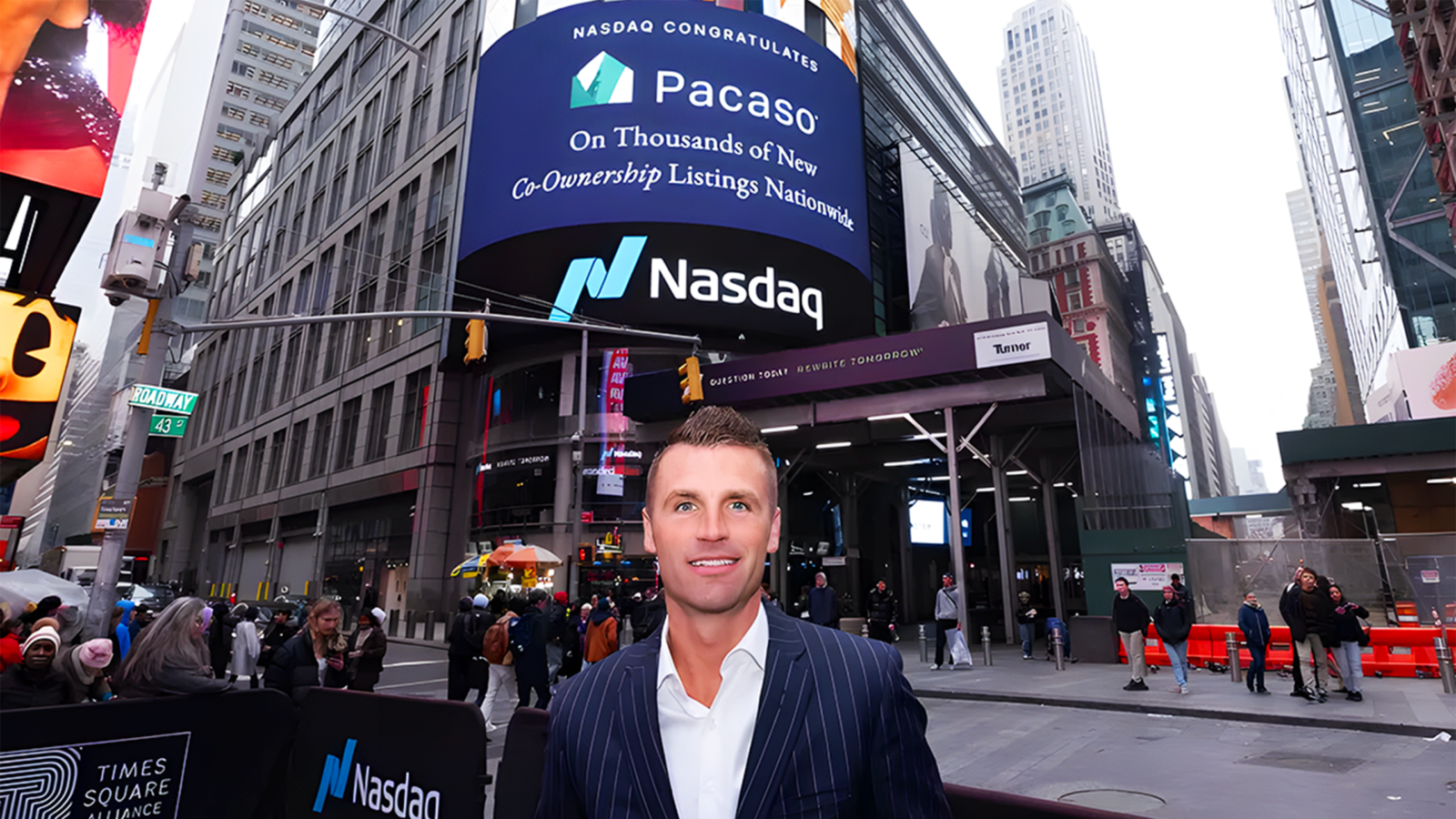Good morning and happy Friday.
With the exquisite delicacy befitting the leader of the world’s largest bank, JPMorgan Chase CEO Jamie Dimon shared his feelings about employees who launched an internal petition urging him to reconsider his hardline decision to end hybrid work earlier this year.
“Don’t waste time on it,” Dimon told a staff town hall on Wednesday, according to a recording of the meeting obtained by Reuters. “I don’t care how many people sign that ******* petition.”
Some staffers reportedly laughed at the blunt response from their boss. For the work-from-home enthusiasts, though, Dimon’s words must have hit like a cold shower, which is exactly what they’ll need to wake up in the morning so they can drag themselves into the office every workday.
Programming note: The Daily Upside will be taking Monday off for the federal holiday.
Fast-Food Enters the MAHA Era

The boss loves his Big Macs, KFC, and Diet Coke, but incoming Health and Human Services (HHS) Secretary Robert F. Kennedy Jr., has long had the fast-food industry in his crosshairs. “Just poison,” was how Kennedy described President Donald Trump’s diet preferences.
The Kennedy scion, officially approved by the Senate on Thursday morning, stepped into his new role just as the nation’s major fast-food chains report their latest batch of quarterly earnings. The American people may have voted to Make America Healthy Again at the ballot box. But how are they voting with their wallets?
The Invaluable Value Menu
The MAHA movement’s long list of criticisms of the fast-food industry range from the reasonable — like pointing out that McDonald’s fries in the US have 11 ingredients, compared with just three in the UK — to the much more disputable, such as claiming that vegetable oils, sometimes called seed oils, are unhealthy, despite health experts insisting that the science says otherwise. (And that’s not to mention the movement’s extreme vaccine skepticism, which may have played a role in an ongoing measles outbreak in a West Texas county where the vaccination rate is far below the level experts say is effective).
But MAHA doesn’t appear to be creating headwinds for the industry just yet. In the war between “healthy” and “affordable,” the latter seems to be winning out — for the most part:
- Wendy’s share price popped nearly 4% Thursday on an earnings beat, with same-store sales in the US growing 4.1% in the fourth quarter. That mirrors a similar beat by RBI on Wednesday, which attributed same-store sales growth of 2.5% in the quarter to the strength of its Popeyes and Burger King brands.
- McDonald’s on Monday reported something of a mixed bag, with US sales down due to an E. coli outbreak — despite its value menu deals pulling in higher traffic. Yum Brands scored a week ago thanks to a 5% increase in same-store sales at Taco Bell, hardly anyone’s idea of healthy eating.
“Consumers are still fixated on value,” R.J. Hottovy, head of analytical research at Placer.ai, told The Daily Upside. “Where we’re seeing kind of the separation on this is it’s the chains that have been able to innovate at that value price point” — noting menu innovation at Taco Bell.
New Year, New Me: Whether the industry faces increased regulation courtesy of MAHA remains an open question. But consumers aren’t unaware of health trends, they just happen to be cyclical, Hottovy says: “This time of year, we typically do see a shift towards healthier and better-for-you products.” Fast-foods’ bigger threat right now is grocery chains that are offering consumers more bang for their buck, he added. Depending on what gets plucked from the supermarket shelves, that might be healthier than a Whopper anyway.
Join Top Investors Before This “Unlisted” Stock Price Changes

Big ideas know no borders. Take Pacaso, whose SoftBank-backed real estate co-ownership model couldn’t be contained to America. After all, 40% of wealthy Americans plan to buy a vacation home abroad within a year. That’s why Pacaso is expanding globally — causing a share price change on 2/27.
They’re already making international waves, selling out their first Paris property in record time. They immediately doubled down – purchasing another and selling that one out, too. Meanwhile, in Cabo, they’ve added seven homes. And this is just the start. They even formed a new partnership with a private UK lender to foster additional growth.
With $100M+ in gross profits already and proven scalability, Pacaso is ready for liftoff. Invest for $2.70/share by 2/27.*
Apple Signs China AI Partnership with Baidu, But Keeps its Options Open
When it comes to China’s AI market, Apple is playing the field.
On Thursday, Joe Tsai, chair of Chinese tech giant Alibaba, confirmed reports that the company had reached a deal with Apple to integrate its AI into iPhones in China. Apple has already rolled out a suite of AI features called Apple Intelligence in markets outside China, but needed a domestic partner in order to roll them out in the Middle Kingdom. Behind the scenes, The Information reported, Apple is still talking to rival Chinese tech giant Baidu.
Slow But Steady
Out of its Silicon Valley compatriots, Apple has always been the company with the most access to the Chinese market, managing to get its hardware and software beyond the so-called Great Firewall. Apple was slow to hop on the AI bandwagon, and its rollout hasn’t been without its hiccups — last month, news publishers were irate after its AI summary bot sent fictitious headlines to iPhone users — but while the company might not have first-mover advantage in western markets, in China it has a headstart on other Silicon Valley giants.
However, Apple also faces fierce competition in China, where its market share has been eroded by Chinese phone firms like Huawei, which already has ties to China’s AI wunderkind DeepSeek. The Information’s report suggests Apple is spreading its bets on AI partnerships, and it’s not just doing that in China:
- In non-China markets, Apple’s AI tools are built using OpenAI’s ChatGPT, which is blocked in China. In March last year, Bloomberg reported that Apple was also chatting up Google to let it integrate Google’s Gemini into the iPhone.
- Per The Information, Apple’s conversations with Baidu are about an AI search feature and building AI capabilities into Siri.
The success of DeepSeek hasn’t just galvanized China’s AI sector, it has also propelled the country’s markets generally into a rally. Per a BBC report, a cohort of people is using DeepSeek like a personal therapist. One user told the BBC that DeepSeek is capable of much more poetic and creative responses than rival home-grown apps.
Frosty Special Relationship: While Apple is enjoying a rare win in China (its share price ticked up by as much as 1.8% on the Alibaba news) it’s having a bit of a struggle with one of America’s allies. The Washington Post reported last week that the UK government is trying to force Apple to create a technical backdoor that would allow it to break its encryption on private messages. It’s a move that Apple has long resisted, arguing that it’s not possible to create a backdoor without also making itself vulnerable to hackers, authoritarian states, and pretty much anyone with a vested interest in snooping on anyone else. US lawmakers said on Thursday, per The Post, that the UK’s order to Apple could endanger Americans’ privacy, and want National Intelligence Director Tulsi Gabbard to make the Brits back off.
Share of Consumer Debt in Delinquency Tracks the Highest in Almost Five Years
The best way to break this news is with the immortal non-words of canine cartoon characters Astro and Scooby Doo: “Ruh Roh.”
The share of US household debt in delinquency rose to a nearly five-year high of 3.6% in the last three months of 2024, according to a Federal Reserve Bank of New York report released Thursday. The data shows a growing cohort of consumers under distress with limited relief in sight.
Pretty, Pretty Good
It should be said that the top line news from Thursday’s report was, as non-cartoon character Larry David would say, “pretty, pretty good.” While household debt — which includes auto loans, credit cards, mortgages and student loans — rose 0.5% to an all-time high of $18 trillion, “consumers are in pretty good shape in terms of the household debt landscape,” Fed economists wrote. That’s because wages have gone up in recent years, bringing borrowing relative to income below pre-pandemic levels (in simpler terms, people are making more and so can afford to pay off more debt).
But then, there are auto loans. While the Federal Reserve cut interest rates by a total percentage point last year, its campaign to tamp down inflation still isn’t over. For that reason, interest rates are still relatively high and, for that same reason, interest on monthly auto loan payments — which lenders base on the Fed benchmark rate — has also remained high. NY Fed researchers said this has clobbered consumers “across the income and credit score spectrum”:
- Serious delinquency for auto loans — when a payment is 90 or more days overdue — rose to 3% in the fourth quarter, the highest since 2010. The Fed’s researchers noted that used car prices, which have come down after soaring during the pandemic, have potentially left “some borrowers underwater on those vehicles.”
- The serious delinquency rate for credit cards rose to 7.2%, the highest since 2011. The overall delinquency rate of 3.6% of debt was the most since the second quarter of 2020, though it remains low compared with pre-pandemic norms.
In a sign that the Fed’s progress tamping down inflation may have stalled, wholesale prices rose 0.4% last month, the Bureau of Labor Statistics said Thursday. That’s not a great sign for potential rate cuts, which could bring down the interest on loans.
Credit Check: Americans’ total credit card balances hit a record high of $1.21 trillion, according to the Fed. That news comes a week after progressive independent Senator Bernie Sanders teamed up with Republican Senator Josh Hawley to introduce a bill that would cap credit card interest rates at 10% for five years, with President Donald Trump signalling his support. A Forbes report published this month found the average rate was 28.6%, while banks can borrow from the Fed at under 4.5%.
Extra Upside
- Open Sesame: Lawyers for Elon Musk said he will drop his bid for OpenAI if the ChatGPT-maker pledges to remain a non-profit.
- Triple Trouble: Standard & Poor’s warned that, if the United States withdraws from the World Bank, the international lender to world governments could lose its triple-A credit rating.
- A Helping Hand for Arm: Shares in semiconductor company Arm jumped 6% Thursday after a Financial Times report said Meta signed up as one of the first customers for its first chip.
Just For Fun
Disclaimer
*This is a paid advertisement for Pacaso’s Regulation A offering. Please read the offering circular at invest.pacaso.com.

